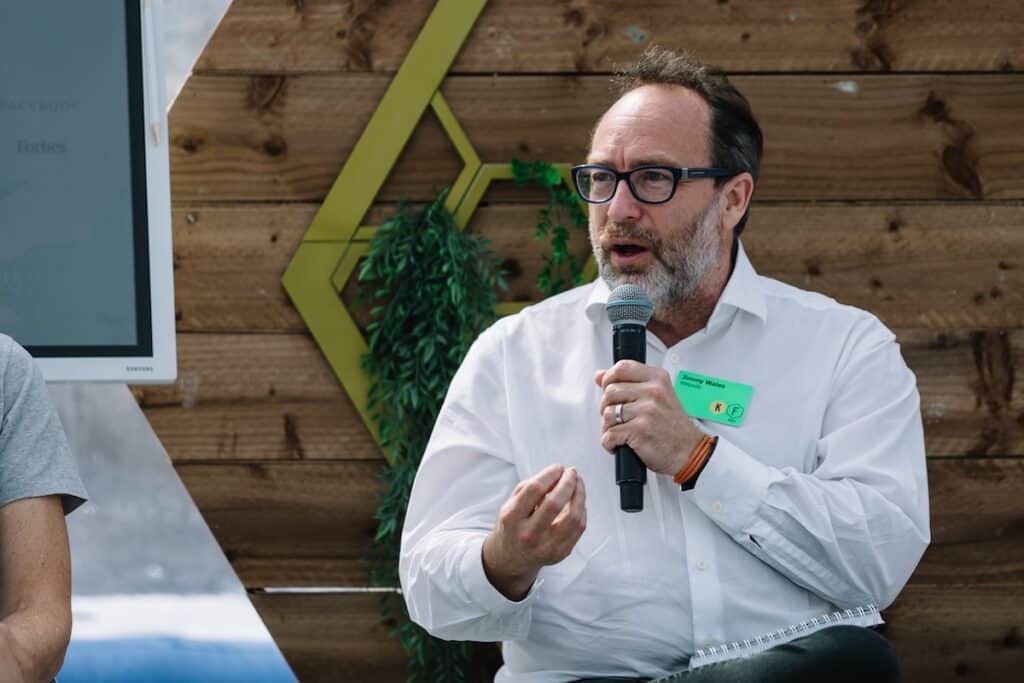Last updated on January 21, 2025
As we move into 2020, I’ve taken some time to reflect on a few big themes from 2019. Below are some of the most salient stories from the past year, and thoughts on what that means for the world of tech, VC, and organisations in general. It’s not a comprehensive list of news stories, but each one has significant implications for the new year.
Mo’ Money, Mo’ Problems
2019 saw the world’s biggest ever VC fund, the notorious Softbank Vision Fund, weather (sort of) a number of high-profile disasters. The biggest hit was obviously the non-IPO of WeWork, which plummeted to a valuation of just $8bn after Softbank’s previous valuation of $47bn. Shortly thereafter, Softbank divested completely from Wag, in which they had made a whopping $300m investment, and other problems like layoffs at portfolio company Fair.com have plagued them as well this year. In the post-IPO world, Uber, another Softbank investment, is not exactly flourishing in the stock market, and other companies like Lyft, Peloton and SmileDirectClub that went public this year have also had less-than-stellar starts.
There are a lot of lessons that can be drawn from this (like the inevitable conclusion that Masayoshi Son might not be as much of a genius as he thinks he is), but the main one for us is that we might be on the verge of a paradigm shift in the investing world.
Many of the darlings of the entrepreneurship world are not actually profitable. Uber is not profitable, and may never be. WeWork isn’t. Lime isn’t. Postmates probably isn’t. What VC money has allowed founders to do is pursue very aggressive business models that can undercut the competition and fund rapid expansion, but do not ultimately lead to profitability. If you blitzscale a loss-making proposition, you will just end up with bigger losses, and this decade has seen a lot of very smart investors put money into compelling visions that aren’t necessarily rooted in financial reality.
Because start-up valuation is a bit of a dark art anyway, companies that are losing money hand over fist can (currently) happily join the Unicorn Club, where the metrics of success ultimately look different from those on Wall Street. But once these companies join the public markets, investors just want a return, and if you’re not making a profit, you’re not paying a dividend.
While 2019 has definitely shaken up the investment world, it remains to be seen if we see a step change in VC investment behaviour.
Lesson: While innovation usually relies on deprioritising profit for a period of time, make sure that innovative activities have a realistic path to profit, or at least tangible value.
The Culture Wars
I talk to a lot of VCs, and if you ask a VC what they look for in an investment, they will almost always say something about the founding team. There’s nothing wrong with this — the founding team is really, really important. But just like a good founder can turn a mediocre idea into a runaway success, a bad founder can bring a good company down.
However, the investment world doesn’t seem to be learning their lesson.
2017 brought Susan Fowler’s explosive blog about the culture at Uber, incontrovertibly driven by then-exec Travis Kalanick. 2018 saw the collapse of Theranos, and with it the revelations of how investors had essentially bought into Elizabeth Holmes’ grand vision, absent a product that actually worked (and yes, there was allegedly fraud, but there were also a lot of missed opportunities to dig deeper). And then 2019 saw the high-profile departures of both Adam Neumann (WeWork’s ex-CEO) and Steph Korey (Away’s ex-CEO) in light of what could gently be termed “very bad behaviour”. Of course, it’s not just a problem in the US. For example, fintech unicorn Revolut has also been plagued by high-profile culture problems very much seen to stem from founder Nikolay Storonsky.
It seems that VCs are still being sucked into cults of personality around founders, while those same founders create terrible internal cultures and make ethically-dubious decision after ethically-dubious decision. There is also the unfortunate reality that it is often different kinds of people who thrive launching early ventures versus scaling large ones. The narrative is often that the same founder takes the company from zero to IPO or acquisition, but many times this may not be the best strategy.
2019 highlighted that this is very much still an issue, and that there is still a lot of room for VCs to vet (continuously) that founders are capable of not just building a great product, but leading a team in a moral, compassionate way.
Lesson: Good culture is not just imperative in the start-up world. Large organisations are also plagued with senior leaders who know how to get results, but leave terrible morale and toxic cultures in their wake. Those that want to foster innovation and creativity must be cautious to employ the right kind of leaders and be ruthless in getting rid of the bad ones.
Software Development Methodology is Eating the World
10 March 2019 saw the second crash involving the Boeing 737-MAX, leading to all similar planes being grounded worldwide (as of publication, the Boeing 373-MAX is still grounded). In short order, Boeing revealed that they had already been working on a software fix (initiated after the previous Lion Air crash) to address the identified issue that ended up causing both crashes.
Every few weeks, one of your electronic devices gives you a little alert that it is installing updates. These updates patch identified issues in the software you’re using — whether for an app, or on the operating system itself — and they are a part of modern software development life. Developers get the code into a reasonable state, ship, and know that they can push fixes out in updates at a later time.
This methodology is not appropriate when people’s lives are at stake.
The fact that Boeing had to do a software update at all shows that insufficient testing and design rigour went into the original 737-MAX. In a world where lean start-up methodology is revered, this is a terrifying thought, especially as more start-ups start to play in areas like biotech or autonomous vehicles, where their MVPs may well make their way into our bodies or onto our roads.
We often criticise larger companies for moving too slowly, but forget that sometimes there is a purpose behind deciding not to “move fast and break things”.
Lesson: Good process can be a strength, even when it slows things down. Analyse where your process is actually adding value for customers and capitalise on it, while continuing to trim down on needless red tape.
Banking on the Future of Fintech
The last few years have seen the iconic coral Monzo card go from status symbol to routine millennial must-have. It certainly seems like Monzo is going more mainstream, and the competition in the challenger banking space is heating up, with Starling, Revolut, and N26 all playing for a slice of the consumer pie in Europe, and NuBank shaking up the Latin American market.
Last year, Natwest launched Mettle, essentially a competitor to business neo-bank Tide. It remains to be seen how Mettle fairs, but it is an acid test of how well traditional banks can replicate the convenience, user experience, and ultimate “cool factor” of the challenger banks.
One factor is that in early 2019, only one in five Monzo customers had their salaries paid directly into their Monzo account. Some interpret this as a sign that while customers love the convenience of using Monzo (and the other neo-banks) for day-to-day transactions, they are not yet trusted platforms for the bulk of people’s money.
From the perspective of the challenger banks, this might not be an issue. Their strategy has always been about creating a great UX and front-end into financial services, and their long-term plans seem to revolve much more around becoming a portal to financial services than the end provider of those services. At some point, your Revolut account may get you access to the best loans, which you can apply for from your account, but they’ll be perfectly happy for a traditional bank to provide the cash.
It may well be large banks providing the cash for the foreseeable future: 2019 saw big problems for Funding Circle, Amigo, and Lendy, fintechs offering various spins on traditional lending. Of course, traditional banks are not keen to let the challengers own the customer experience, and offerings like Mettle will test if consumers prefer big banks when they fix their user interfaces. If they do, it will raise question marks about the future of the challenger banks as a whole.
It’s also worth noting that 2019 established Europe as the leader in consumer-facing fintech, which with the exception of Venmo has more or less bypassed the usually dominant US market as it stays more focussed on B2B (e.g. Stripe, Ripple). Monzo, for example, has already spoken about US expansion plans, but it remains to be seen if European challenger banks will take off there.
Lesson: Where new technology is disrupting your business, work to understand the root cause to bring your own offering more in line with disruptors, but never lose sight of your business’s unique advantages and what they can bring to any product.
A Quantum Leap
October saw Google publish (in Nature) its claims of achieving quantum supremacy — essentially showing that a programmable quantum computer can achieve a task that a classical computer can’t. The task itself wasn’t exactly the key to advancing life on Earth — it involved generating random numbers — but it represents a huge milestone in the world of quantum computing.
This is definitely a big deal, but the implications might take awhile to be felt. Quantum computing remains incredibly expensive and impractical for the vast majority of tasks, and access to quantum computing power is limited. That said, a scaled quantum computing infrastructure would require a complete rethink of technologies we all take for granted, like encryption, but also hold huge promise for fields like drug discovery. What is certain is that a once theoretical piece of technology is coming to life that over time has the potential to completely change the face of the digital world.
Lesson: If your company uses digital tech (hint: it does), now is the time to start investing in at least an understanding of what quantum computing will mean for your business. Build partnerships and alliances with other companies so that you can collaborate both on positive research and disaster prevention.
A Brave New World of Biotech
Last year was a banner year for biotechnology, as many long-term projects started to show results. From novel genome-based cancer therapeutics to even more consumer-based microbiome and genome-based products to applied synthetic biology being used to grow meat and replace plastic to the growing number of uses for CRISPR, biotech is getting increasingly ubiquitous to all industries.
One of the most promising, but also most controversial, technologies is CRISPR, which is used to essentially edit genes. The technology is finally mature enough for in-life applications, and while last year the first human clinical trials of CRISPR for cancer treatment in humans launched in the US and astronauts used CRISPR for the first time to better understand cell damage in space, a Chinese scientist also used CRISPR (unauthorised) to edit the genes of twin human embryos, causing international scandal and outrage. There are myriad applications for the technology, and a new, more precise version of CRISPR (CRISPR Prime) emerged last year providing promise for a wider variety of applications, but the bioethical implications of CRISPR technology are in their infancy, as is the regulation around its use. There is dramatically increased urgency to build a consensus around the ethical uses of this technology, and to create a vision of the extent to which we will accept, as a species, the editing of the human genome.
Food and “animal” productsare also experiencing a bio-revolution. Israeli company Aleph Farms became the first to grow meat from animal cells aboard the International Space Station. The invention could one day make space missions more self-sufficient. And in some of the bigger news of 2019, Burger King partnered with Impossible Foods to bring you the first meatlike-but-not-meat burger — a true feat of applied synthetic biology that predicts all the other products to come including chicken-free egg whites, cultured whey, animal-free dairy ice cream, and animal-free leather.
Lesson: Increasingly we are seeing interest for CRISPR, biotech and synthetic biology grow from outside of pharma from big CPGs, oil and gas, and materials producers, and there are new applications for these technologies emerging all the time. Make sure your organisation has access to biotech experts who can help you understand how these technologies are relevant to you.
Climate Change: There’s a will, but is there a way?
If you were in Australia, chances are you rang in the new year in a cloud of smoke. In the worst bushfire season on record, after a year of record-breaking temperatures, the Australian government’s stance of climate change denial is looking more and more ridiculous, and drawing more and more ire. 2019 was the year when climate change seemed to finally break into the public consciousness. It was the year of Greta Thunberg and countless world-wide climate strikes. The year when public perception about the urgency of the situation finally shifted. When there became significant will to actually do something.
What that something should be, on the other hand, remains somewhat elusive. The solution to climate change will undoubtedly involve technology, but much of that technology is still in its infancy.
Take Notpla, which develops seaweed-based packaging to replace plastic, and whose decomposable water pouches were trialled at the London marathon. The technology itself is promising, but it has nowhere near the scalability needed to make even a small dent in the plastic usage of today. A manufacturer like Nestle will churn out billions of plastic containers each year, all at negligible cost. It will likely be years before Notpla can even start to compete.
Carbon capture is another area where new technologies are being developed, but are still a few years away from even being able to pilot. MIT spin-out Verdox is aiming to capitalise on new technology developed at the Institute, and food start-up Air Protein is looking to convert CO2 in the air into food, but both technologies are comparatively immature, and their ability to function at scale has not been proven.
Another hope for clean energy is nuclear fusion, which is still largely theoretical, although several UK companies (and a fair number of state-funded and international research projects) have claimed massive advances. Two UK companies claim breakthroughs that would see plants online by 2030, but this is well past the chronological point where carbon consumption needs to drop dramatically.
Biotech also has some promising applications for sustainability, from plastic break-down and replacements to alternative foods. For example, the Danish enzymes developer Novozymes partnered with French bioplastics company Carbios to mass-produce enzymes to break down biodegradable plastics. However, broader industry applications are just reaching lab maturity now, and the next decade will hopefully see mass applications of synthetic biology for sustainability become a reality.
While there is now decidedly increased momentum in the climate change movement, that momentum needs to be paralleled in the tech world to have a hope of meeting the necessarily ambitious climate change targets set to avert a worst-case scenario.
Lesson: More than ever, the onus is on large companies to help earlier-stage tech companies test and scale their solutions. Big corporates have large energy and waste footprints, along with big supply chains and the ability to enact change in them, and must be an integral part of the sustainability solution.
Conclusion
As we move into 2020, it feels like we are on the brink of something. Is it the recession that tests the business models of some of today’s most-loved start-ups? Is it a shift in investment mindset? It is capital flowing increasingly to companies tackling climate change? What’s certain is that 2020 is shaping up to be an exciting year.
Many thanks to FI manager Ana Sofia Almagro for her many contributions to this article.
Dr Tanya Goldhaber brings her combined expertise in technology, research and strategy to her current work at Founders Intelligence, where she has delivered on client projects spanning retail, energy, manufacturing, logistics and consumer goods. She joined FI from BT, where she spent four years across roles in data analysis, e-commerce, and global strategy. Tanya has a PhD in Engineering Design from the University of Cambridge, which she attended on a Marshall Scholarship, where her research specialised on motivational user interface design. She also has a BSc from MIT in mechanical engineering with minors in cognitive science and music, completing her undergraduate research in cognitive neuroscience. In her spare time, she enjoys competitive ballroom dancing.
 All Posts
All Posts


